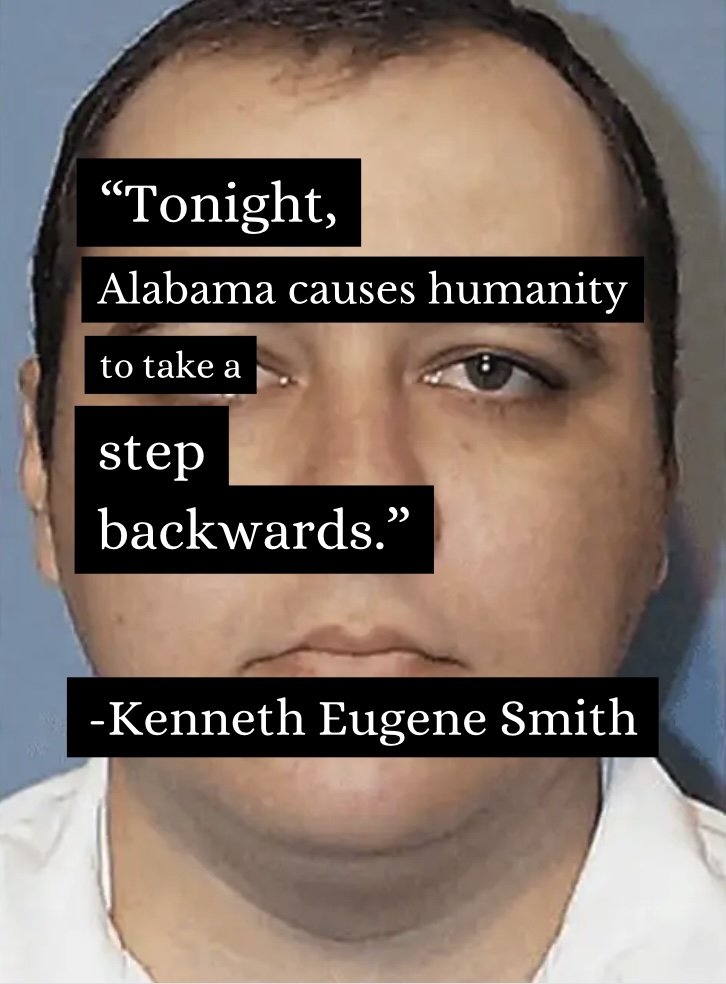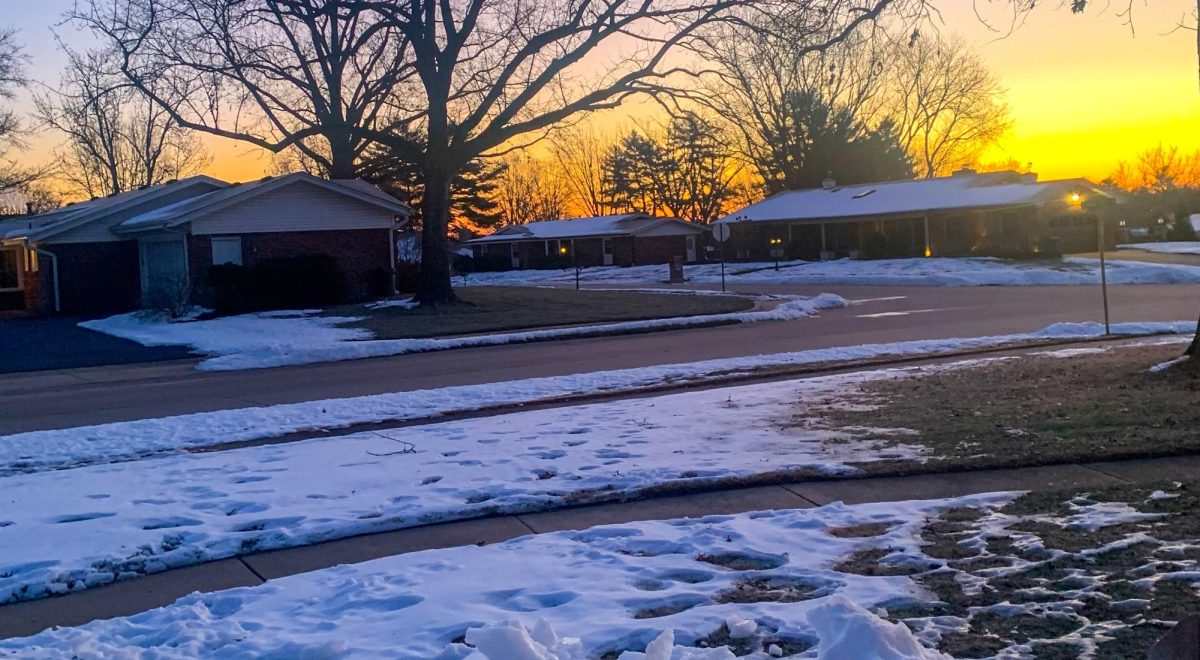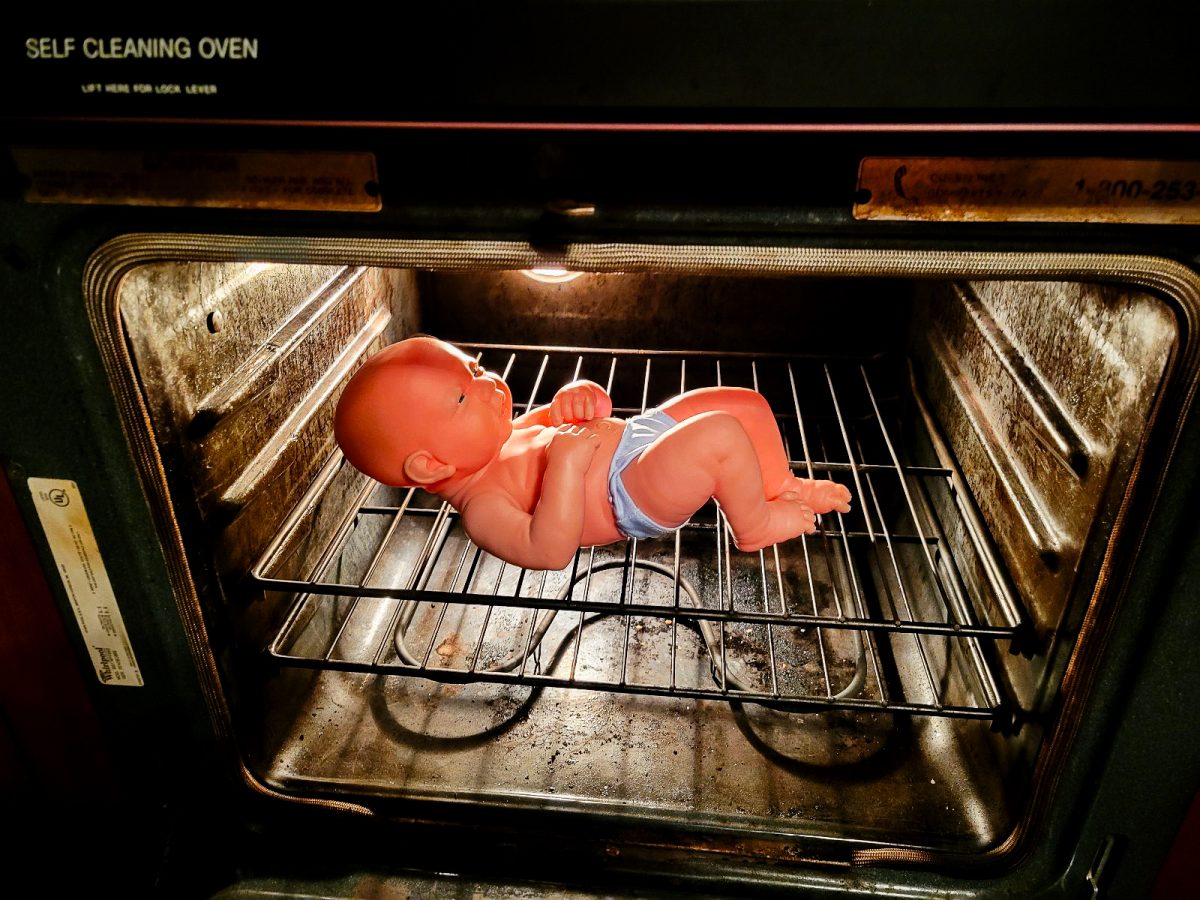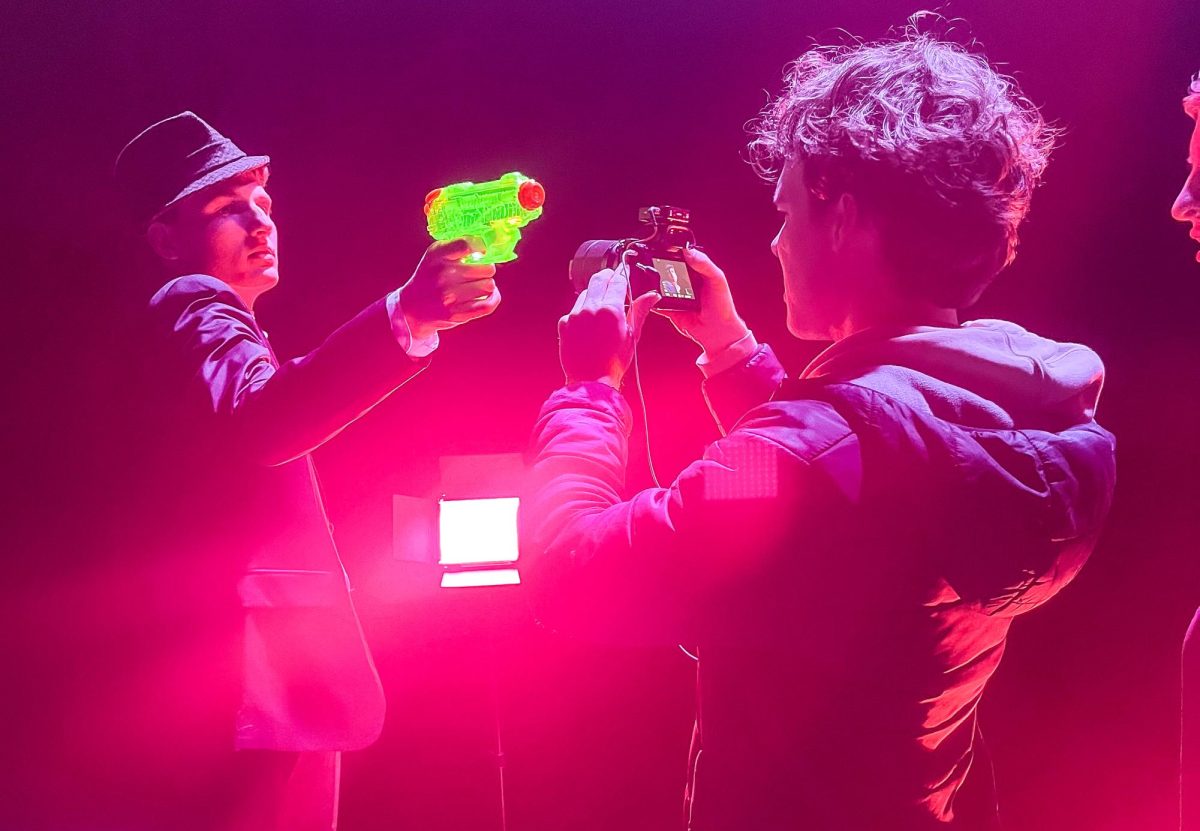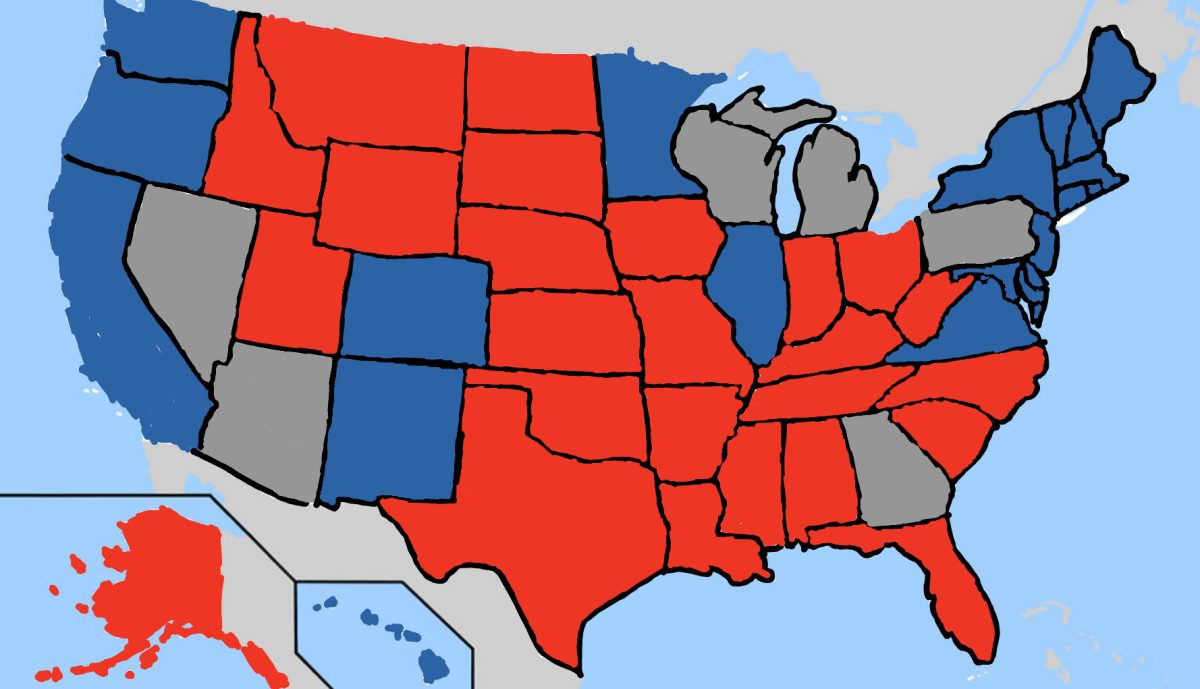At 8:15 p.m. on January 25th, 2024, the curtain to the witness room was closed on the execution of Kenneth Eugene Smith, signifying the end of the first nitrogen hypoxia execution and the rise of a new execution method for criminals on death row.
While any form of execution raises ethical concern, the use of nitrogen hypoxia was previously untested and predicted by many professionals to lead to a torturous death. Furthermore, the State of Alabama used Smith, who they had already attempted to execute by lethal injection, as their guinea pig to test a new method of execution that would allow them to be able to execute other inmates currently on death row.
On November 17th, 2022, the State of Alabama attempted to execute Smith by giving him a lethal injection. Moments before the beginning of the execution, the Eleventh Circuit issued a stay of execution; however, Smith was not notified and was kept strapped to a gurney. Twenty minutes later, the Supreme Court lifted the stay of execution, and the execution team began attempting to give Smith the lethal injection.
The execution team failed, and the resulting execution attempt could be described as torture, with Smith being unable to stand on his own after the execution window expired. This marked the third consecutive failed execution by the State of Alabama. Smith and his lawyers attempted to argue that a second execution attempt would violate the Eighth Amendment, which protects citizens from facing forms of punishment that could be considered cruel and/or unusual.
“I think his arguments were [that] it’s cruel and unusual because [he] shouldn’t have to go through this again. I think he was saying [that] it’s not just that moment, it’s also now this process where [he has] to wait again, [he has] to anticipate it again, where [he is] now another man on death row for the second time.” said Mindy LeVar, the Law & Constitution Academy Lead at Westminster.
As part of an agreement between the State of Alabama and Kenneth Smith, the state was no longer allowed to attempt to execute him using lethal injection. With the only other legal methods being electrocution and nitrogen hypoxia, the State decided to use the previously untested method of nitrogen hypoxia.
The decision drew the attention of many people, including the United Nations High Commissioner for Human Rights Volker Turk, who said, “I deeply regret the execution of Kenneth Eugene Smith in Alabama despite serious concerns [that] this novel and untested method of suffocation by nitrogen gas may amount to torture, or cruel, inhuman or degrading treatment”.
Nitrogen hypoxia, although untested on humans, has been “ruled out […] for euthanizing most mammals due to ethical concerns” (Ensign, 2024). If using nitrogen gas to euthanize animals has been eliminated due to concerns that it causes suffering that borders on torturous, one could argue that using the same method to execute a human could constitute cruel and unusual punishment.
Joel Zivot, a practicing physician in anaesthesiology, argued that the effects of nitrogen hypoxia were unknown, and it was unclear how long one would have to breathe in the nitrogen before it killed them. “This claim that we should tolerate the fact that torture is brief, and, therefore, not material is quite an odd thing to me,” said Zivot.
According to the Alabama Department of Corrections, as of February 1st, 2024, the State of Alabama had 164 inmates on death row. One reason for the vast number of death row inmates is the unavailability of drugs needed for a lethal injection, which is a result of pharmacies being prohibited from selling those drugs to prisons for the purpose of lethal injections. However, nitrogen gas is much cheaper and more accessible to the prisons.
“It seems a little like it’s expedient for them to change the method because they can’t obtain the medication. […] It’s appalling […] to hear the death of the human being referred to in terms like that, where economics is a consideration.” said Levar.
As of one day after Smith’s execution, “43 other inmates sentenced to death in Alabama have requested execution by nitrogen hypoxia” (Breen, 2024). After Alabama paved the way, other states expressed their interest in utilizing the new method, including Oklahoma, Mississippi, and Ohio, with 36, 35, and 118 inmates on death row, respectively.
The last time an execution was carried out using gas was the execution of Walter LaGrand, a German who was executed in Arizona. His lawyers argued many of the same reasons Smith’s did, including that a gas execution warranted cruel and unusual punishment. LaGrand was executed in a gas chamber filled with cyanide gas on March 3rd, 1999.
While every preceding gas execution up to the most recent one in 1999 occurred in some form of a gas chamber, Smith had a mask placed over his face that ensured pure nitrogen would flow into his lungs. The use of a mask for a gas execution instead of a chamber seems to be making efforts to distance itself from the history associated with gas executions.
Capital punishment has always been a controversial topic, but the circumstances surrounding each inmate on death row never fail to draw attention, criticism, and concern. Whether the focus is on the legal process, the method of execution, or the death penalty as a whole, morals and humanity cannot be overlooked in favor of the so-called “justice” that is achieved.
“The fact that so many people are falsely accused, falsely convicted, and then we can assume falsely executed […] we should all be concerned that this exists in the world, whether it’s our compassion for other human beings or it’s our fear for ourselves, that one of us could end up on the wrong side of the law.” said LeVar.
In response to the execution of LaGrand and his brother, German foreign minister Joschka Fischer said, “States whose justice system kill[s] are not meeting their responsibility to set an example to society. Europeans believe that the death penalty cannot be justified either ethically or legally and has not proved to be an effective means of combating crime.”
While every side has reasons for their choices, sometimes the choice they make is inexcusable. The detrimental effect that Smith’s execution—and those who follow—will inevitably have on our society is best summed up by Smith’s final words: “Tonight, Alabama causes humanity to take a step backwards. Thank you for supporting me. Love all of you.”



